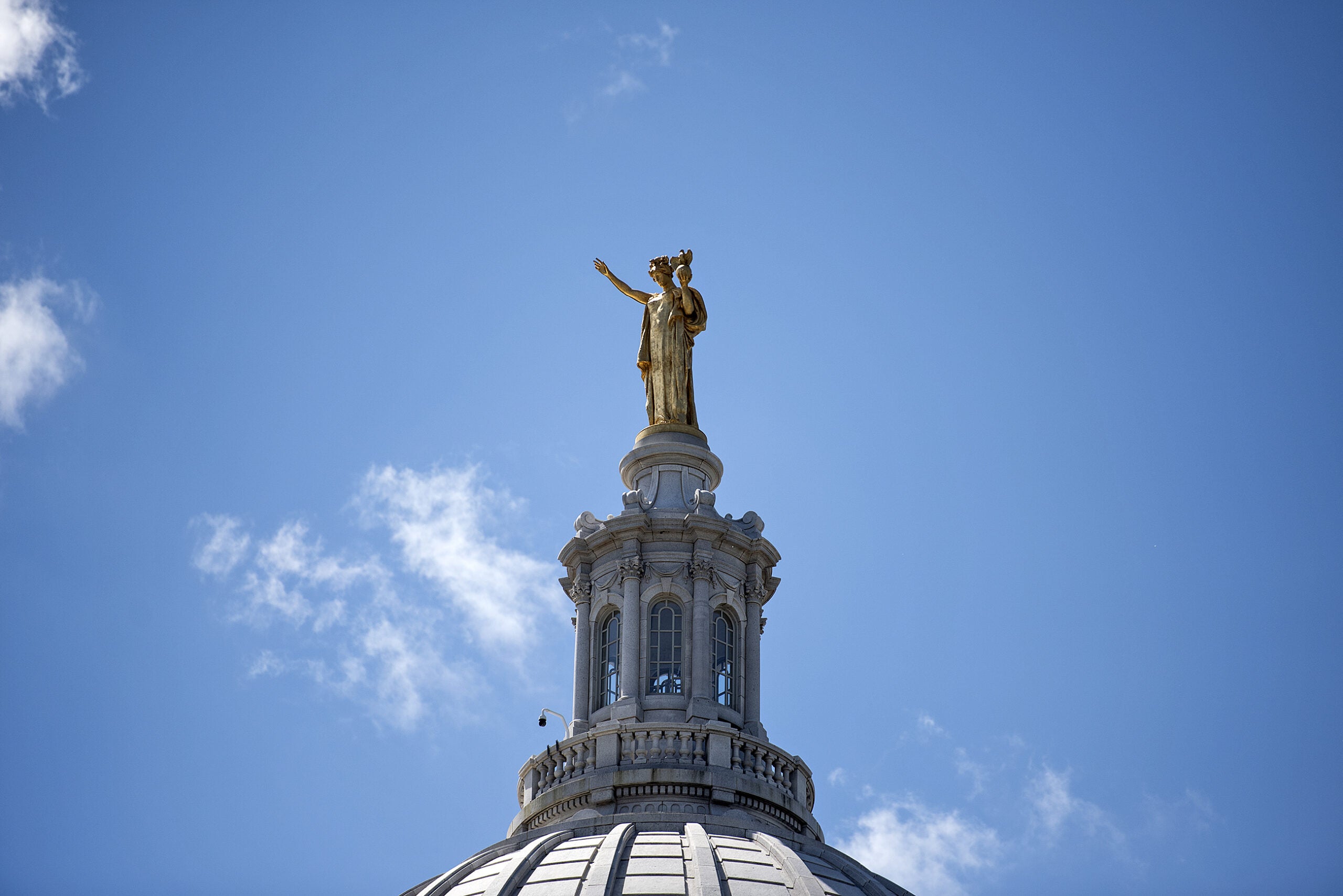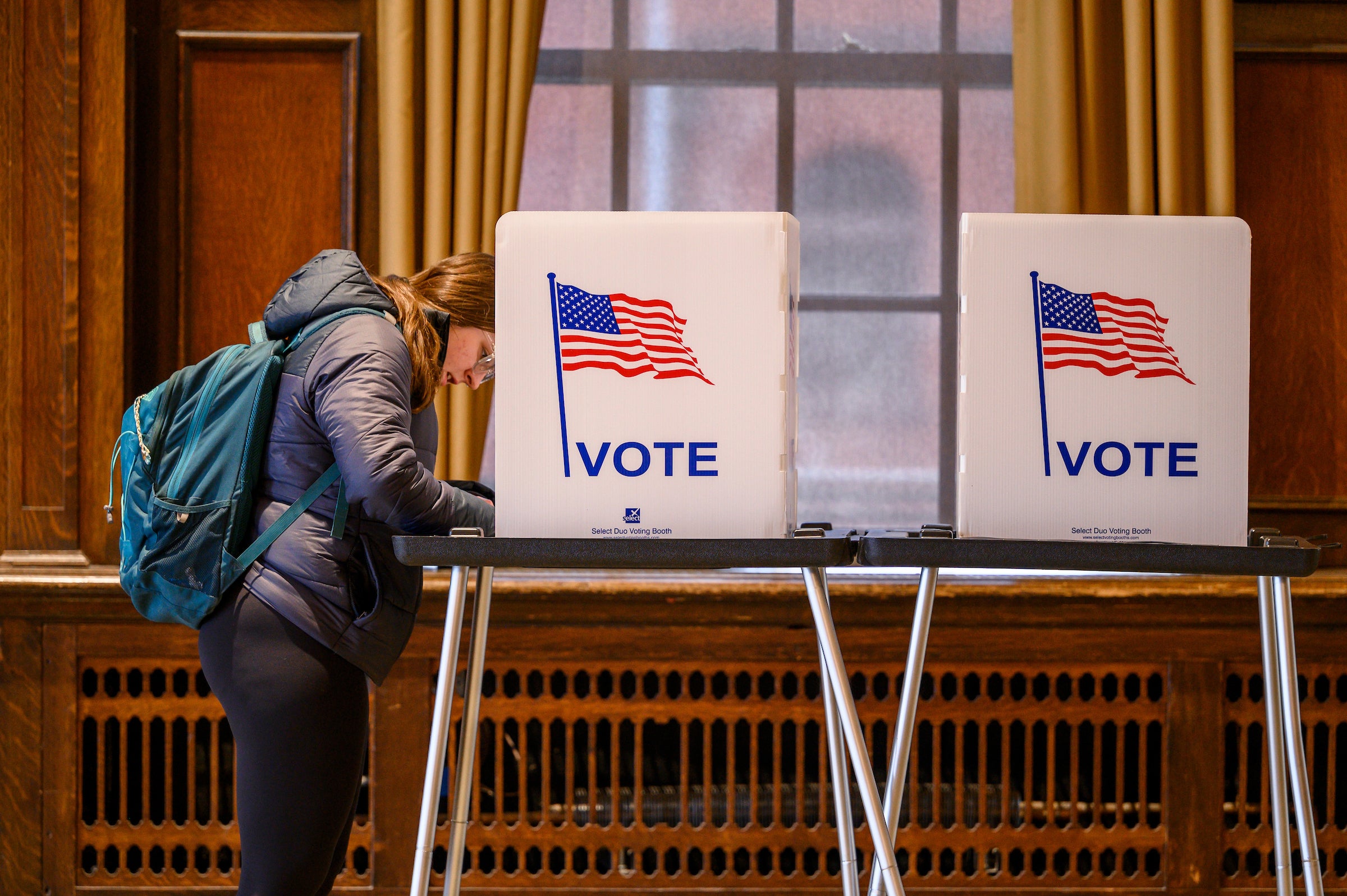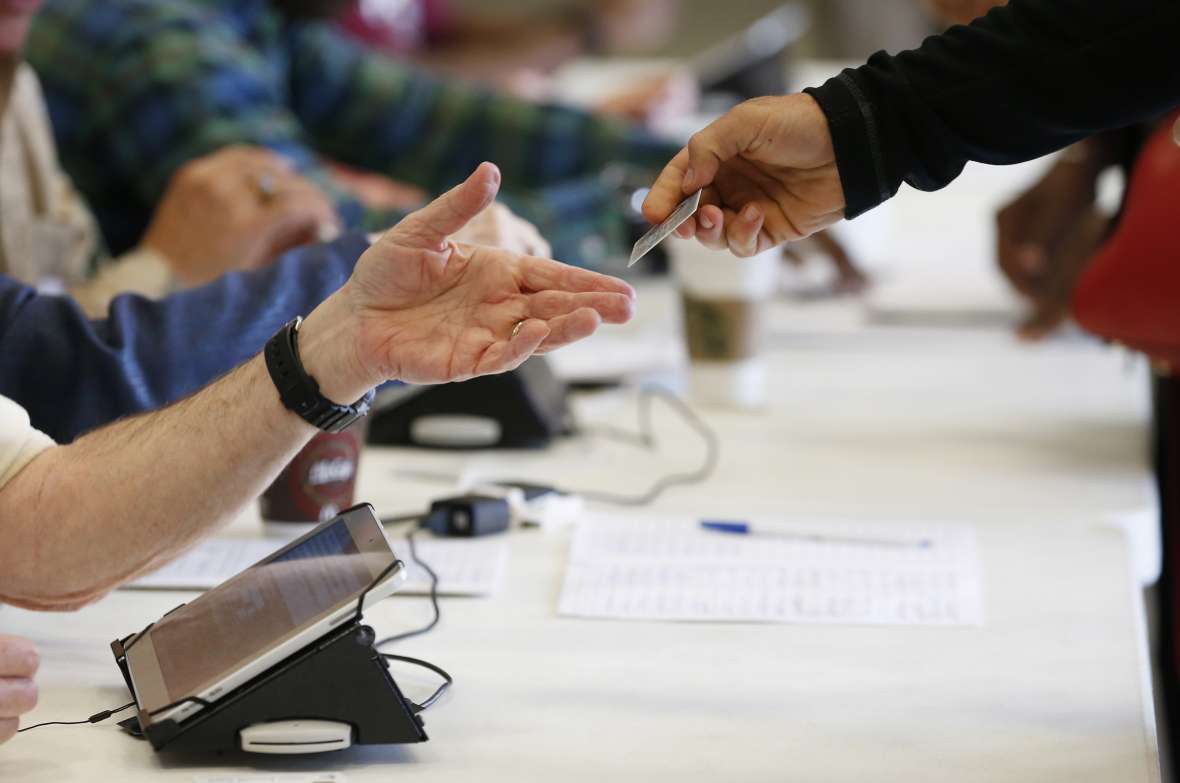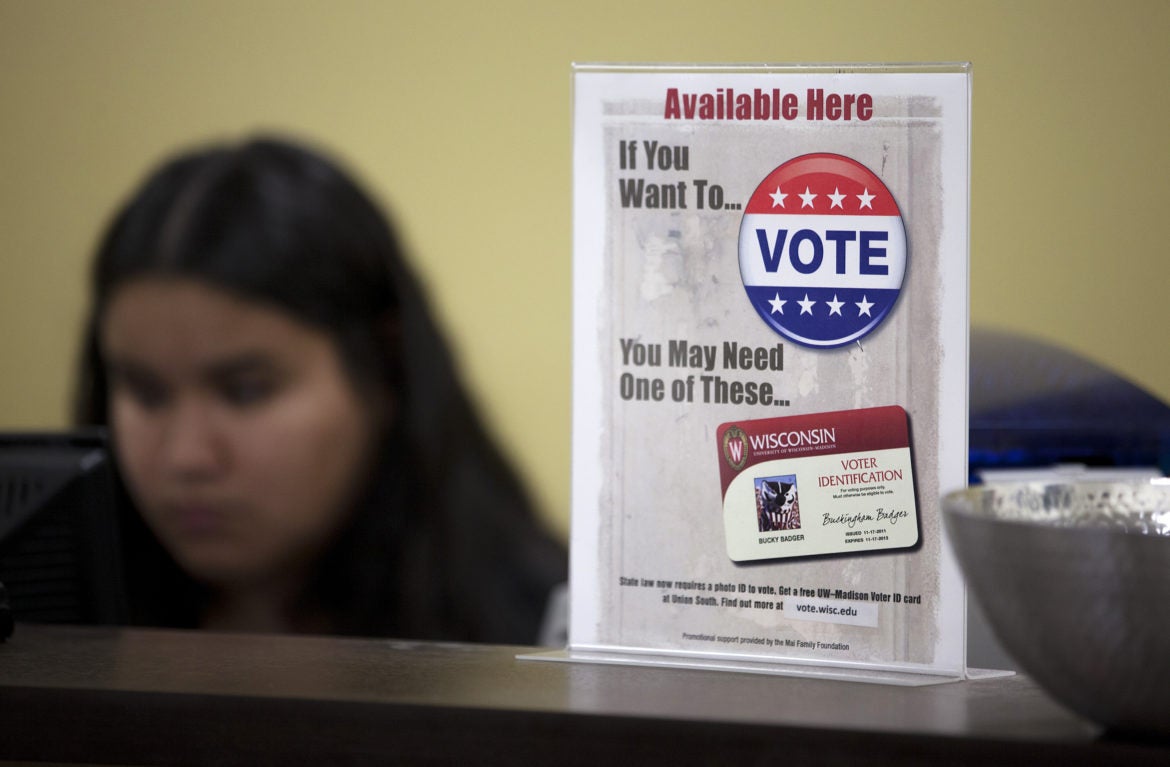Republicans in the state Senate voted Wednesday to approve a number of high-profile bills, including Republicans’ plans for federal COVID-19 stimulus money and several proposed changes to Wisconsin election laws.
The 11 bills outlining Republican priorities for spending the federal funds passed the Senate on mostly party-line votes, with Republicans voting in favor and Democrats against. Sens. Steve Nass, R-Whitewater, and Roger Roth, R-Appleton, joined Democrats in voting against several of the bills. The state Assembly approved the plans, also along party lines, Tuesday.
The proposals face long odds before Gov. Tony Evers, who is not required to get input from lawmakers on how to spend the federal money and has raised some concerns with the Republican approach. The governor has argued involving lawmakers in the process could slow down disbursing the funds.
Stay informed on the latest news
Sign up for WPR’s email newsletter.
GOP leaders have pushed for months for Evers to include lawmakers in crafting the spending plan for the $3.2 billion in aid set to come to the Wisconsin state government under Congress’ latest pandemic aid plan. The governor has sole authority under federal guidelines to direct federal funding across the state and has done so for previous rounds of coronavirus stimulus money.
The bills share some of the same priorities as the governor’s spending plan. The areas of overlap include investments in broadband internet expansion across Wisconsin, grant funding for small businesses and aid to the state tourism industry.
However, the Republican plans would spend different amounts than the governor has proposed. For example, Evers’ initial proposal included $200 million for infrastructure, including broadband, and $600 million for a small business grant program. Republicans proposed $500 million solely for broadband and $200 million for small business grants. Republicans would spend $75 million on aid to the state tourism industry, while Evers’ initial plan included $50 million for tourism support.
The GOP is also proposing several things the governor hasn’t mentioned, like sending $150 million in aid to long-term care facilities that have struggled during the pandemic. They would also spend $1 billion on direct payments to property taxpayers.
Some of those measures, like the property tax relief and a plan to spend $250 million to pay off state debt, may not be allowed under the federal stimulus bill, according to the Legislature’s nonpartisan budget office.
Other proposals approved Wednesday that may violate requirements in the federal stimulus bill, according to the budget office, are:
- A proposal to spend about $54 million upgrading Wisconsin’s emergency communications systems. The same proposal would also spend $15 million to expand mental health treatment at the HSHS Sacred Heart Hospital in Eau Claire.
- A $309 million grant program for local highway and bridge projects.
- A measure aimed at preventing a tax increase on employers that support Wisconsin’s unemployment insurance program. While the amount of the plan could vary depending on fluctuations in Wisconsin’s labor market, it would currently cost an estimated $310 million.
Other GOP bills that would meet federal requirements, according to budget office analysis, would spend $61 million on water-related programs, like replacing lead service lines, and $100 million on rural economic development grants.
During debate, Democrats criticized Republicans for the proposals. Senate Minority Leader Janet Bewley, D-Mason, argued Republicans are wasting their time and misleading the public by introducing bills related to something they have no official authority over.
“It’s not real,” Bewley said. “It’s not fair to the people of Wisconsin to see this posturing. It certainly doesn’t help the people of Wisconsin.”
Senate Majority Leader Devin LeMahieu, R-Oostburg, pushed back.
“These are real ideas, these are real solutions, this package will benefit the state of Wisconsin,” he said. “We’ve been begging to work with the governor this whole time. We’re the Legislature — we control the purse, we pass the budget.”
LeMahieu also argued it will be difficult for the Republican-controlled state Legislature to approve the next two-year state budget, which is scheduled to be completed by this summer, if they don’t know exactly where the federal money is going.
Evers hasn’t said whether he will veto all 11 bills.
Election Bills Include Limit On Private, Nonprofit Support For Elections
The Senate voted Wednesday to approve several proposed changes to Wisconsin election laws.
The bills are part of a Republican-backed package of proposals, several of which are direct responses to GOP criticism of the 2020 presidential election.
One proposal approved Wednesday would bar local governments and the state from accepting grant money from an individual or group to assist with administering elections.
In July, Wisconsin’s five largest cities — Milwaukee, Madison, Green Bay, Kenosha and Racine — announced they would share $6.3 million in grant funding from the Center for Tech and Civic Life (CTCL), a group funded by Facebook executive Mark Zuckerberg, to help run the election during the pandemic.
CTCL said it awarded grants to a total of 221 counties, cities, towns and villages in Wisconsin as part of more than 2,500 election grants handed out nationwide.
Some election officials have raised concerns with the bill, saying it takes away a helpful source of funding and shifts the burden of increasingly expensive elections way from taxpayers.
The measure passed on a voice vote. It has yet to be voted on in the Assembly.
Other election-related bills approved Wednesday would:
- Require the state Elections Commission to post minutes of its meetings within 24 hours. Supporters argued the change could increase transparency. Opponents argued the timeframe could be difficult for the commission to meet and that other state agencies aren’t held to the same standard. The bill passed on a voice vote. It has yet to be voted on in the Assembly.
- Create penalties for election observers who cause disturbances at polling places, including a fine up to $1,000 or 90 days in jail for repeat offenses. Current state law doesn’t include specific penalties for these disturbances. The proposal would also make designated observation areas larger. Supporters of the plan argue it encourages transparency, while opponents say it could enable voter intimidation and set up election workers for unfair penalties. The bill passed 20-11, with Republicans voting in favor and Democrats against. It has yet to be voted on in the Assembly.
Measure Barring Government Vaccination Mandates Approved
Lawmakers also approved a bill that would bar state and local health officials from requiring the public to receive the COVID-19 vaccine.
Supporters argue the bill rightfully removes government from a personal health care decision. Opponents say it sends the wrong message about vaccine safety. The bill passed the Senate on a voice vote. It now moves to Evers’ desk for his signature. The governor hasn’t said if he will sign it.
Another pandemic-related bill approved by the Senate on a voice vote Wednesday would bar health officials from limiting gatherings in places of worship during the COVID-19 pandemic. That bill has also already passed the Assembly and goes to the governor’s desk. The governor hasn’t said if he will sign it.
Wisconsin Public Radio, © Copyright 2025, Board of Regents of the University of Wisconsin System and Wisconsin Educational Communications Board.







